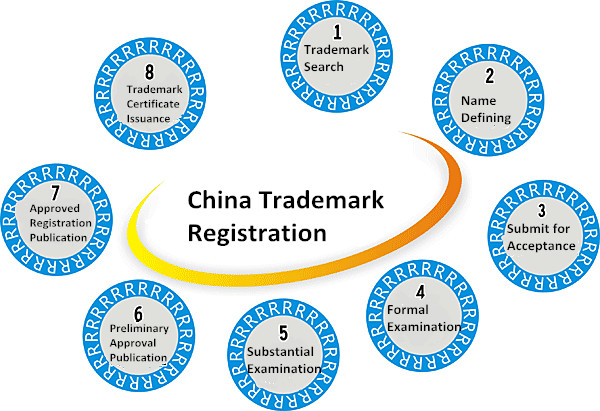China hotline: 86-755-82143422 Email: anitayao@citilinkia.com
Taiwan began to seek admission to the GATT in 1990. The GATT regarded Taiwan as a developed economic body because of its economic strength at its application. In this connection, they set the same deadline for Taiwan to adjust its intellectual property system as that of other GATT or WTO developed countries. In this regards, Taiwan government promptly adjusted the related legislation and revised its copyright laws in accordance with the international trend.

In order to meet the international standard, Taiwan Legislation has comprehensively revised the Copyright Law in 1992 as follows:
1. Has clear and concise structure.
2. Complies with international conventions and treaties. The Copyright Law protects works of both Taiwan and foreign origin on the basis of reciprocity.
3. Expressly provides both moral rights and economic rights. Moral right include the rights of public release, attribution, and integrity.
4. Meets international standards for the term of protection. The Law extends the term of copyright to life of the author plus 50 years, or 50 years after the date of the first publication of a work.
5. Seeks to harmonize social and public interests with the rights of authors and copyright owners through an expanded chapter on fair use.
In terms of enforcement, various government departments have adopted number of measures to assist the copyright holders in enforcing their rights in infringement cases. For examples: To prevent the unauthorized import of copyright goods, the Directorate General of Customs has established a set of guidelines pursuant to the Copyright Law. Authorized importers are listed in the customs database, and good imported by these companies will be allowed to clear. Where the importer is not listed as authorized, the local representative of the copyright owner will be notified, and if the goods are not licensed, the importer will be required to return the goods to the exporting country.
Also, in order to prevent the export of infringing computer software products, the government has implemented an export administration system since the end of 1992. Under the system, registration, verification, and examinations on 14 categories of products that contain computer programs are required. The products inspected included computers, printers, and video game machines.
While multimedia technology improves daily, its intellectual property problems proportionally increase. Due to the complexity and potential impact of multimedia issues, the Industrial Technology Department of Ministry of Economic Affairs retained the Institute for Information Industry (III) to study and develop solutions to assist industry in overcoming difficulties encountered in product development.
The Multimedia Research Project conducted under the III has been conducting a study of the legal protection of multimedia in two different phases:
1. First Phase - Identifying problems and the Publication of the “Guidelines for the Legal Protection of Multimedia. The multimedia companies are being visited in order to find out the most common problems firms are facing in their development of multimedia programs. The result of the first phase of research were complied and published as “Guidelines for the Legal Protection of Multimedia.” The book is in a question-answer format and provides information on about 90% of the most commonly faced problems by Taiwanese multimedia firms. In addition, the topics are arranged in a flowchart through the development of multimedia products: the planning stage, the drafting of the script, the collection of materials, manufacture, and the sales.
2. Second Phase - Proposal for Revisions to Multimedia Copyright Legislation. The III issued a list of recommendations to revise the Copyright Law to protect multimedia. The recommendations include copyright problems stemming from digital technology.
With the reference materials collected from the Untied States, Japan, England, and Germany, the III in put forth several recommendations for the revision of the Copyright Law in August 1995:
1. Revise the definition of “Reproduction”.
Article 3(5) of the Copyright Law defines “Reproduction” as printing, copying, sound recording, video recording, photographing, transcribing, or other tangible reproductions.
2. Add “digital Work” as a work eligible for multimedia protection.
3. Multimedia copyright owners may agree not to enforce certain moral rights.
4. The owners of digital works should enjoy the same economic rights, such as, rental, reproduction, public recitation, presentation, performance, and broadcasting.
5. Terms of protection for digital works should be 50 years as well.
There is no doubt that Taiwan government has paid lots of effort in the reformation to its copyright system. However, while this progress has been well recognized by the international community, protection for works of foreign nationals is based on reciprocity. Due to the current diplomatic situation, only a limited number of countries and territories, such as the U.S., U.K., Switzerland, Hong Kong, Spain, and Korea have copyright relations with Taiwan. That is to say, of more than 180 countries in the world, only six of them have reciprocal copyright relation with Taiwan.
Contact us
For further queries, please do not hesitate to contact ATAHK at anytime, anywhere by simply calling China hotline at 86-755-82143422, 86-755-82143512, or emailing to anitayao@citilinkia.com.